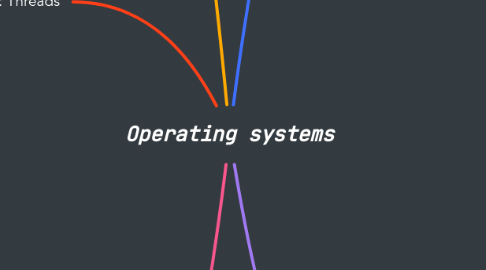Operating systems
作者:devil hook


1. Chapter 03: Processes
1.1. Process concept
1.2. process sheduling
1.3. Operations on processes
1.4. Inter process communication
1.5. Examples of IPC systems
1.6. Communication in client server systems
2. Chapter 04: Threads
2.1. Overview of threads
2.2. Multithreading models
2.2.1. Many to one
2.2.2. One to one
2.2.3. Many to many
2.3. Thread libraries
2.4. Threading issues
2.5. Operating system examples
2.6. Windows xp threads
2.7. Linux threads
2.8. Benefits
2.8.1. Reponsiveness
2.8.2. Resource sharing
2.8.3. Economy
2.8.4. Scalability
3. Chapter 05: Cpu scheduling
3.1. Basic concepts
3.1.1. Cpu utlization
3.1.2. Throughput
3.1.3. Tumaround time
3.1.4. Waiting time
3.1.5. Response time
3.2. Scheduling criteria
3.3. Scheduling algorithms
3.4. Multiple processor sheduling
3.5. Operating system examples
3.6. Algorithm evaluation
3.7. Cpu scheduling
3.7.1. Premptive
3.7.2. Non P remptive
4. Chapter 01 : Introduction
4.1. What operating system do
4.2. Computer system organization
4.3. Computer system architecture
4.4. Operating system structure
4.5. Operating system operations
4.5.1. Os is a resource allocater
4.5.2. Os is a control programe
4.6. process management
4.7. Memory management
4.8. Storage management
4.9. Protection and security
4.10. Distributed Systems
4.11. Special purpose systems
4.12. Computing environments
4.13. Open source operating systems
4.14. Computer system components
5. Chapter 02 : Operating system structure
5.1. Operating system service
5.1.1. User interface
5.1.2. Program execution
5.1.3. I/O Operations
5.1.4. File system manipulation
5.1.5. Communications
5.1.6. Error detection
5.2. User operating system interface
5.2.1. CLI
5.2.2. Also known as command interpreter
5.3. System calls
5.3.1. API
5.3.2. Why use api rater than sytem calls?
